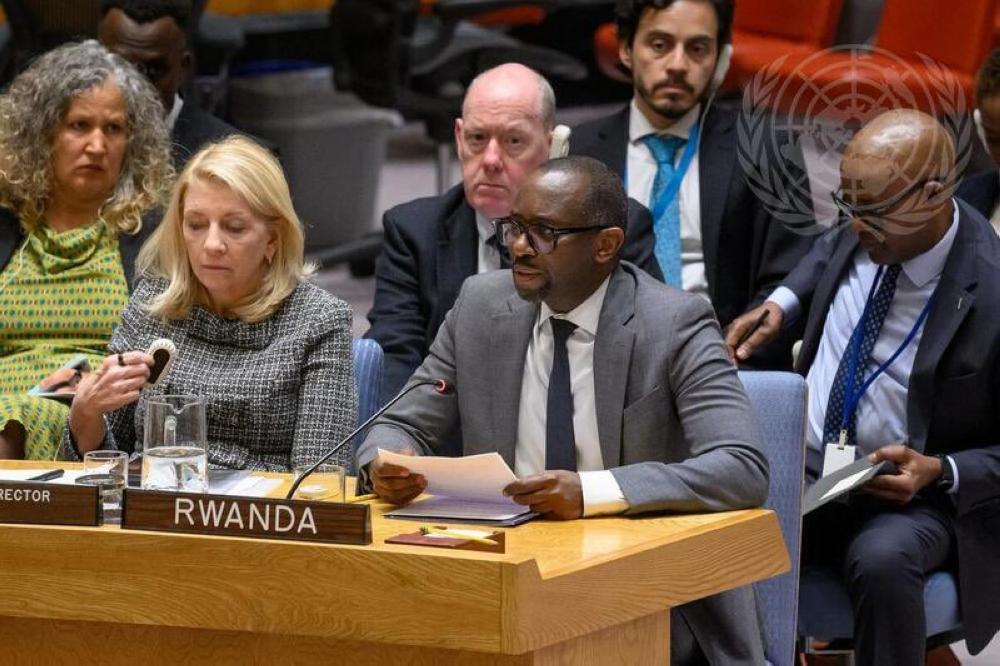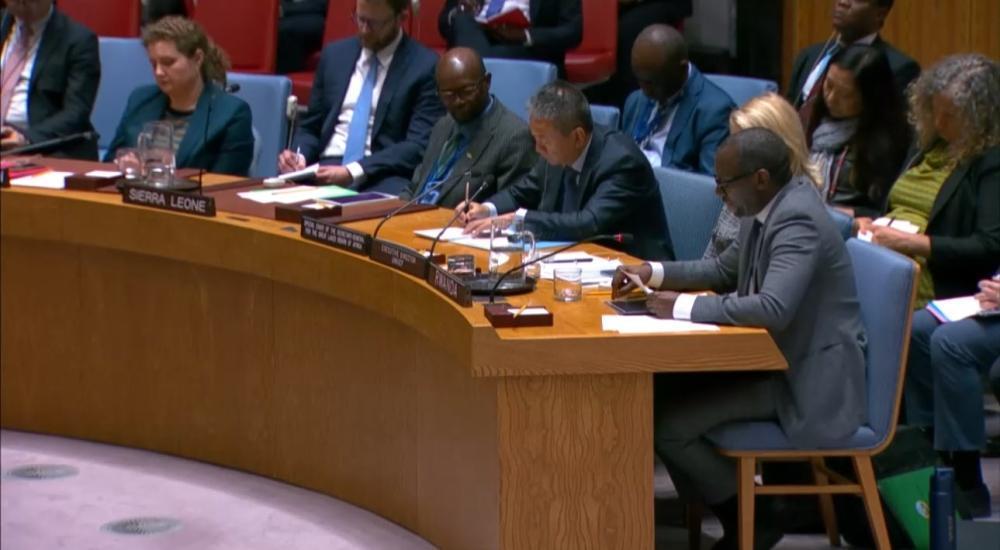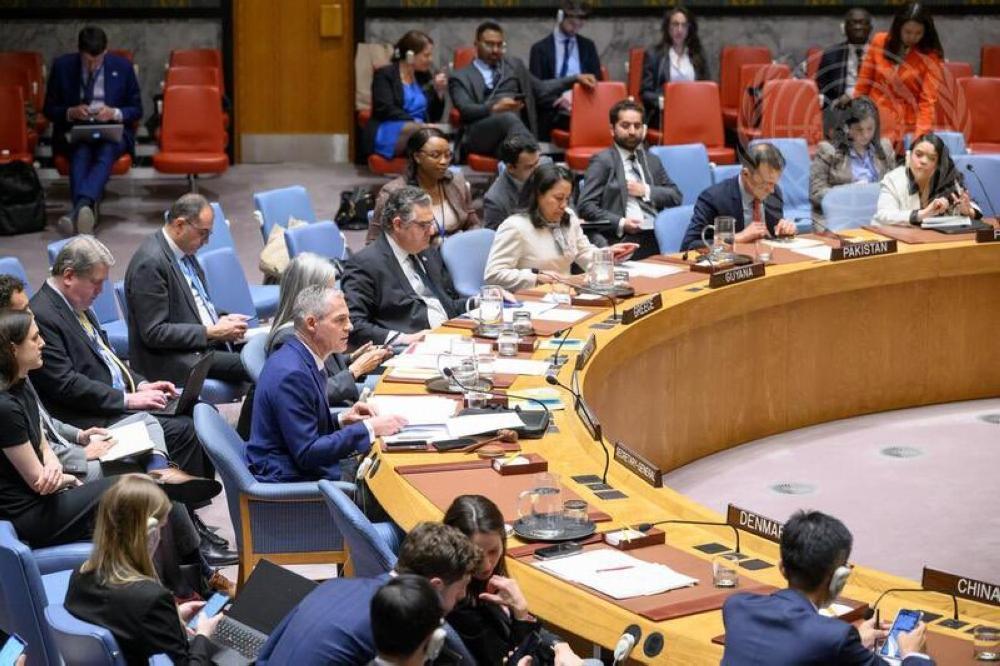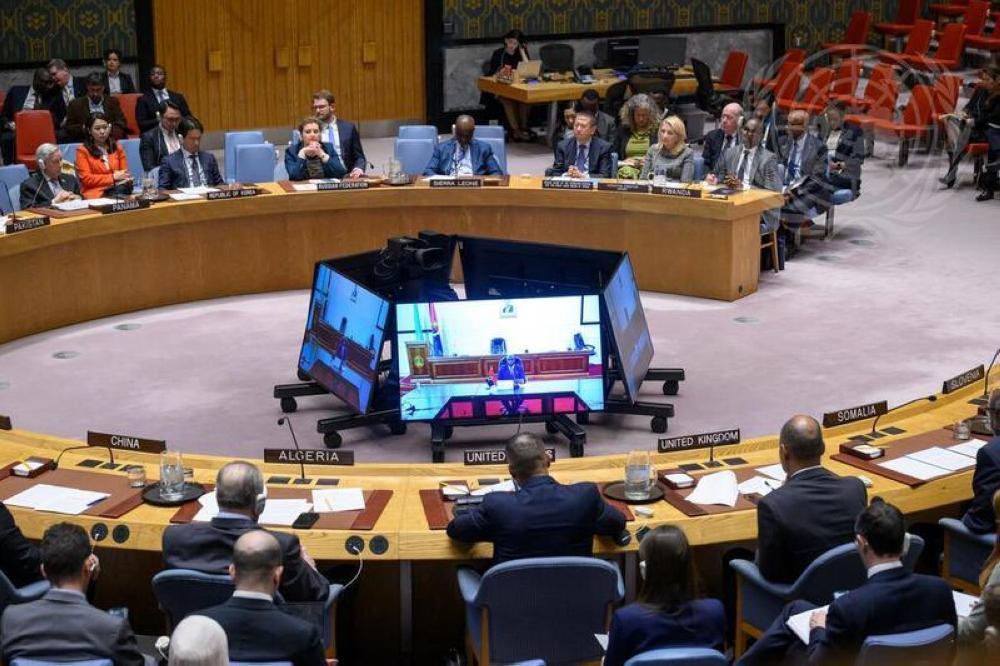Africa-Press – Rwanda. Entertaining or legitimizing the FDLR, a DR Congo-based militia formed by remnants of the perpetrators of the 1994 Genocide against the Tutsi in Rwanda –even tacitly, prolongs the conflict and destabilizes the region further, said the Rwandan envoy to the UN.
Robert Kayinamura, the Deputy Permanent Representative of Rwanda at the UN, stressed this on April 16 during the Security Council meeting on the Peace, Security, and Cooperation Framework (PSCF).
He reiterated that the PSCF was collective commitment to end the recurring cycle of conflict in DR Congo and the Great Lakes Region by addressing the root causes of instability and building mutual trust among states and peoples of the region. However, more than 12 years later, the very same challenges remain unaddressed, he said, adding that the continued presence of foreign and domestic armed groups which pose significant threats to the region, puts the framework’s key pillar of disarmament, demobilization, and reintegration on spotlight.
“In connection with this, FDLR remains the most significant security threat in the region. Despite more than 20 Security Council resolutions calling for its disarmament and disbandment since 2003,” he pointed out.
With its presence and support from the Congolese government, the genocidal militia continues to recruit, train, and commit atrocities, including sexual violence, ethnic cleansing, and mass killings.
The militia group has been integrated in the Congolese army, FARDC, in a coalition with the Burundian national army, and the Southern African Development Community (SADC) Mission in the Democratic Republic of Congo (SAMIDRC), among other military entities, which planned to attack Rwanda.
Their plot failed this year after AFC/M23 rebels took control of Goma, the capital of eastern DR Congo’s North Kivu Province, which borders Rwanda.
“It is no longer a secret, but a fact based on reports presented. The FARDC/FDLR coalition undermines both regional stability and the PSCF itself. No country, Rwanda included, should accept the existential threat posed by such groups,” said the envoy.
Kayinamura added: “Entertaining or legitimizing the FDLR, even tacitly, prolongs the conflict and destabilizes the region further.”
He called for the evaluation of PSCF implementation given that resources have been spent, resolutions adopted, yet the root causes of conflict, ethnic discrimination, armed group proliferation, and impunity, continue to fester.
Rwanda committed
Despite these challenges, Kayinamura highlighted that Rwanda remains optimistic and committed to the full implementation of the PSCF, with the supervision of the Security Council and in coordination with regional partners to break free from the cycle of violence and bring lasting peace to the Great Lakes Region.
According to him, the country proposed different steps to support its effective implementation, including holding accountable, with no selectivity, all those who support or collaborate with FDLR, taking a firm stance against hate speech and xenophobia in DR Congo, fuelling violence, division and persecution of Congolese Tutsi communities.
Kayinamura also noted that DR Congo should confront its internal contradictions, as externalizing and scapegoating Rwanda for its own problems will not solve them.
“Blame games have become their business, but this is just a painkiller. They must own up.”
He took note of the continued violations of the hardly obtained ceasefire by Wazalendo, a militia allied with FARDC, without any condemnation by the Council, calling it a total lack of ownership of the process as DR Congo relegates political responsibility to a militia.
He said that while Rwanda remains committed to the PSCF’s promise, it will only be realized if it is supported by genuine accountability, regional alignment, and bold political leadership.
For More News And Analysis About Rwanda Follow Africa-Press









